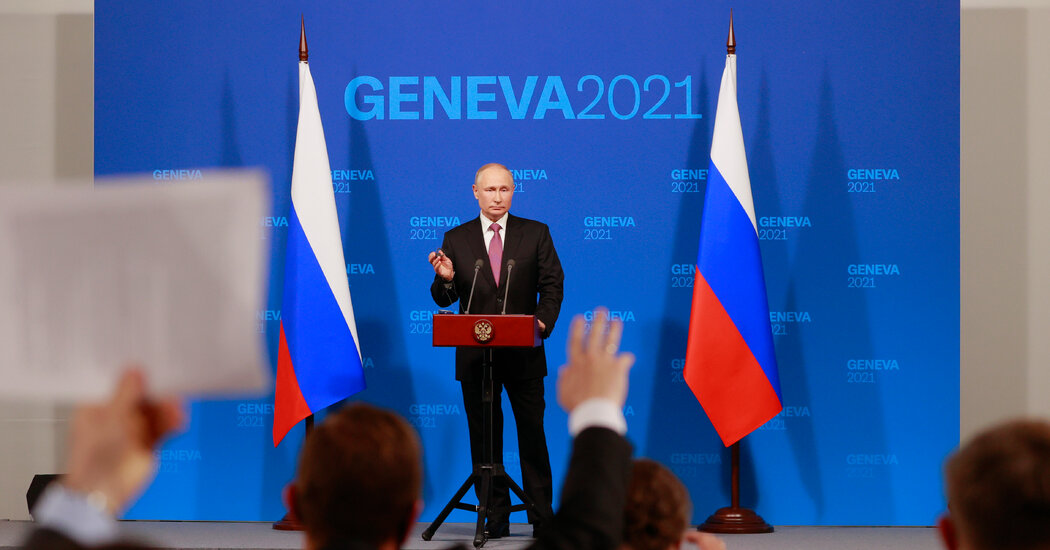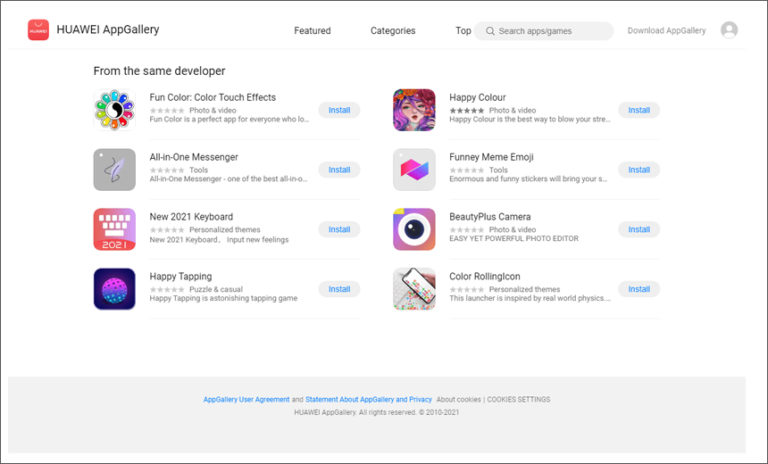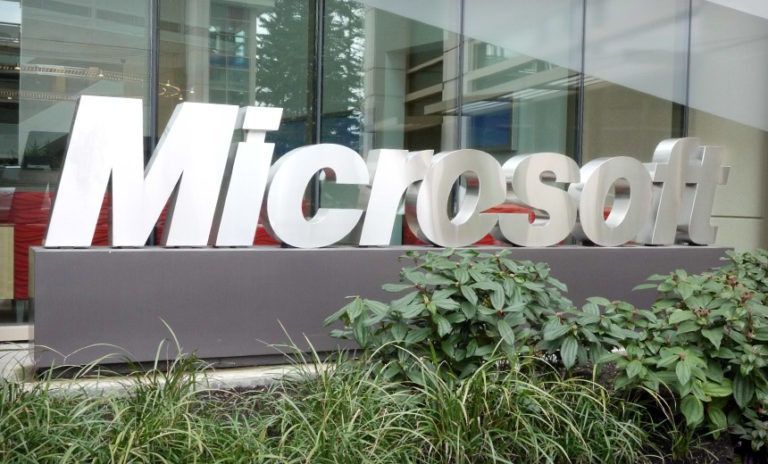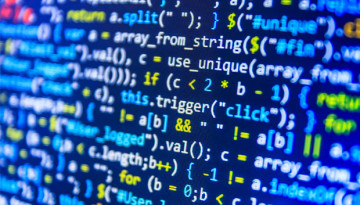Putin and Biden News Conferences: Live Updates
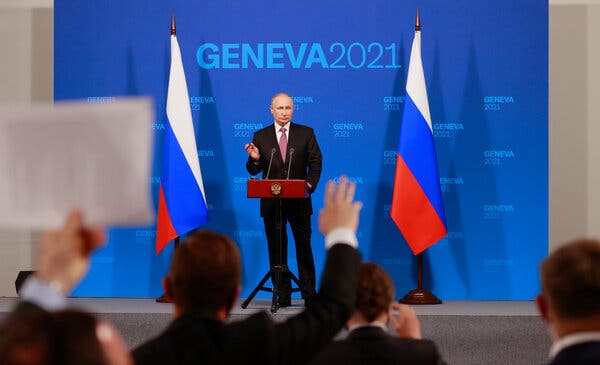
President Biden and President Vladimir V. Putin of Russia emerged from their first in-person summit Wednesday and offered broad claims of good will, but it was clear that on issues ranging from cyberattacks to human rights, the two countries remain profoundly divided.
“There has been no hostility,” Mr. Putin said as he met with reporters after the summit in Geneva. “On the contrary, our meeting took place in a constructive spirit.”
For his part, Mr. Biden said, “The tone of the entire meeting was good, positive.”
But the tensions remained evident.
Mr. Putin denied that Russia has played a role in a spate of increasingly bold cyberattacks against U.S. institutions and said it was the United States that is the biggest offender.
The Russian leader also appeared to give short shrift to what Mr. Biden had said was a key objective of the talks: to establish some “guardrails” that would make some kinds of attacks on critical infrastructure off limits in peacetime.
Mr. Biden said that he had pressed the Russian president on a variety of issues — and that he would not stop doing so.
“I made it clear to President Putin that we’ll continue to raise issues of fundamental human rights,” he said.
“I did what I came to do,” Mr. Biden said.
He expressed optimism that Mr. Putin would not seek to escalate the tensions between the two nations.
“The last thing he wants now is a cold war,” Mr. Biden said, noting that “we have significant cyber-capabilities, and he knows it.”
The high-stakes diplomatic engagement came at the end of a whirlwind weeklong European tour for Mr. Biden in which he sought to rebuild the traditional alliances that often bolstered the United States’ position during the Cold War.
Mr. Biden has argued that the world is at an “inflection point,” with an existential battle underway between democracy and autocracy. But with Mr. Putin at the vanguard of the autocrats, the American leader faced criticism from some quarters for even taking part in the summit.
Sensitive to the dangers of appearing to embrace the Russian leader, the White House insisted that both men hold separate news conferences after the three-hour meeting. Mr. Putin spoke first.
There were signs of easing tensions.
Mr. Putin said the two nations had agreed that their ambassadors, who both returned to their home countries amid the tensions, should return to their posts in the near future. He said they would also begin “consultations” on cyber-related issues.
“We believe the sphere of cybersecurity is extremely important for the world in general — including for the United States, and for Russia to the same degree,” he said.
Mr. Putin, who flew in from Sochi, Russia, arrived first for the summit at an 18th-century Swiss villa perched above Lake Geneva. A short time later, Mr. Biden’s motorcade pulled up as Russian, American and Swiss flags waved in the breeze under a blue sky with the United States entourage.
The two leaders were greeted by President Guy Parmelin of Switzerland, who welcomed them to Geneva, “the city of peace.”
“I wish you both presidents a fruitful dialogue in the interest of your two countries and the world,” he said.
The two men touched on a range of difficult topics, from military threats to human rights concerns. Some were longstanding, others of newer vintage.
During the Cold War, the prospect of nuclear annihilation led to historic treaties and a framework that kept the world from blowing itself up. At this meeting, for the first time, cyberweapons — with their own huge potential to wreak havoc — were at the center of the agenda.
But Mr. Putin’s comments to the media suggested the two leaders did not find much common ground.
In addition to his denials that Russia had played a destabilizing role in cyberspace, he also took a hard line on human rights in Russia.
He said Mr. Biden had raised the issue, but struck the same defiant tone on the matter in his news conference as he has in the past. The United States, Mr. Putin said, supports opposition groups in Russia to weaken the country, since it sees Russia as an adversary.
“If Russia is the enemy, then what organizations will America support in Russia?” Mr. Putin asked. “I think that it’s not those who strengthen the Russian Federation, but those that contain it — which is the publicly announced goal of the United States.”
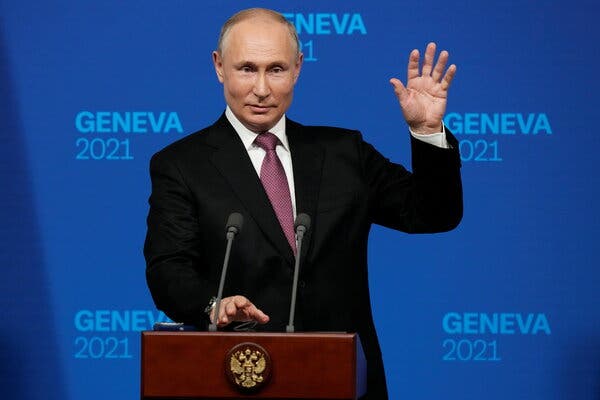
President Vladimir V. Putin on Wednesday repeated well-worn denials of Russian mischief and tropes about American failings, as he spoke to the press after his first summit with President Biden.
But between those familiar lines, he left the door open to deeper engagement with Washington than the Kremlin had been willing to entertain in recent years. On issues like cybersecurity, nuclear weapons, diplomatic spats and even prisoner exchanges, Mr. Putin said he was ready for talks with the United States, and he voiced unusual optimism about the possibility of achieving results.
“We must agree on rules of behavior in all the spheres that we mentioned today: That’s strategic stability, that’s cybersecurity, that’s resolving questions connected to regional conflicts,” Mr. Putin said at a nearly hourlong news conference after the summit. “I think that we can find agreement on all this — at least I got that sense given the results of our meeting with President Biden.”
Mr. Putin’s focus on “rules of behavior” sounded a lot like the “guardrails” that American officials have said they hope to agree on with Russia in order to stabilize the relationship. “Strategic stability” is the term both sides use to refer to nuclear weapons and related issues.
To be sure, there is no guarantee that the United States and Russia will make progress on those fundamental issues, and American officials fear Russian offers of talks could be efforts to tie key questions up in committees rather than set clear red lines. But in recent years, substantive dialogue between the two countries has been rare, making Wednesday’s promises of new consultations significant.
But Mr. Putin fell back on familiar Kremlin talking points to bat away criticisms, pointing to supposed human rights violations in the United States and denying Russian complicity in cyberattacks. He also refused to budge in response to questions over his repression of dissent inside Russia and the imprisonment of the opposition leader Aleksei A. Navalny. As he has said in the past, he repeated that the Kremlin does not see domestic politics as up for negotiation or discussion.
“If you ignore the tiresome whataboutism, there were some real outcomes,” said Samuel Charap, a senior political scientist at the RAND Corporation in Arlington, Va. “Russia is not in the habit of confessing its sins and seeking forgiveness. Particularly under Putin.”
The main outcomes to Mr. Charap were the agreement on U.S.-Russian dialogue on strategic stability and cybersecurity, as well as the agreement for American and Russian ambassadors to return to their posts in Moscow and Washington. Mr. Putin also said there was “potential for compromise” on the issue of several Americans imprisoned in Russia and Russians imprisoned in the United States.
To tout his renewed willingness to talk — while acknowledging the uncertainty ahead — Mr. Putin quoted from Russian literature.
“Leo Tolstoy once said: ‘There is no happiness in life — there are only glimmers of it,’” Mr. Putin said. “I think that in this situation, there can’t be any kind of family trust. But I think we’ve seen some glimmers.”
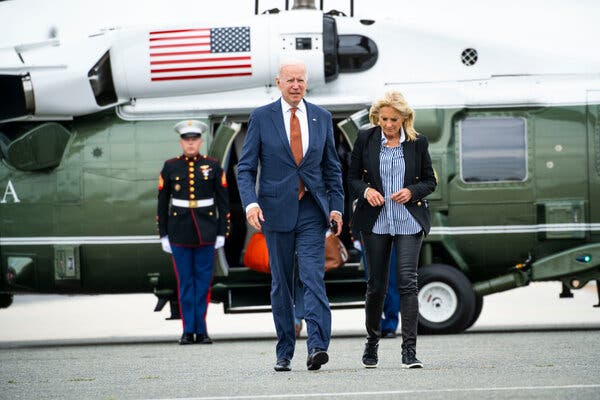
After President Biden met his Russian counterpart on Wednesday, the two men did not face the news media at a joint news conference.
President Vladimir V. Putin of Russia spoke first, followed by Mr. Biden, in separate news conferences, a move intended by the White House to deny the Russian leader an international platform like the one he received during a 2018 summit in Helsinki with President Donald J. Trump.
“We expect this meeting to be candid and straightforward, and a solo press conference is the appropriate format to clearly communicate with the free press the topics that were raised in the meeting,” a U.S. official said in a statement sent to reporters this weekend, “both in terms of areas where we may agree and in areas where we have significant concerns.”
Top aides to Mr. Biden said that during negotiations over the meetings the Russian government was eager to have Mr. Putin join Mr. Biden in a news conference. But Biden administration officials said that they were mindful of how Mr. Putin seemed to get the better of Mr. Trump in Helsinki.
At that news conference, Mr. Trump publicly accepted Mr. Putin’s assurances that his government did not interfere with the 2016 election, taking the Russian president’s word rather than the assessments of his own intelligence officials.
The spectacle in 2018 drew sharp condemnations from across the political spectrum for providing an opportunity for Mr. Putin to spread falsehoods. Senator John McCain at the time called it “one of the most disgraceful performances by an American president in memory.”
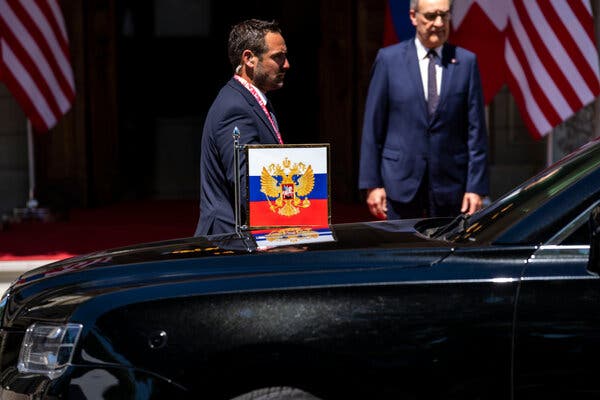
Piggybacking on the attention to Russia with the Biden-Putin meeting on Wednesday, the European Union issued a long and pessimistic report on the state of relations between Brussels and Moscow.
“There is not much hope for better relations between the European Union and Russia anytime soon,” said Josep Borrell Fontelles, the E.U.’s foreign policy chief, introducing the report. It was prepared in advance of a summit meeting of European leaders next week at which the bloc’s future policy toward Russia will be on the agenda.
That discussion has been delayed several times by other pressing issues, including the pandemic.
“Under present circumstances, a renewed partnership between the E.U. and Russia, allowing for closer cooperation, seems a distant prospect,” Mr. Borrell said in a statement, introducing the 14-page report prepared by the European Commission.
The report urges the 27-member bloc to simultaneously “push back” against Russian misbehavior and violations of international law; “constrain” Russia’s efforts to destabilize Europe and undermine its interests, especially in the Western Balkans and neighboring post-Soviet states; and “engage” with Russia on common issues like health and climate, “based on a strong common understanding of Russia’s aims and an approach of principled pragmatism.”
The ambition, Mr. Borrell said, is to move gradually “into a more predictable and stable relationship,” a similar goal to that expressed by the Biden administration.
Mr. Borrell had an embarrassing visit to Moscow in February as he began to prepare the report. He stood by without reacting in a joint news conference as his Russian counterpart, Foreign Minister Sergey Lavrov, called the European Union an “unreliable partner.”
As they were meeting, Moscow announced that diplomats from Germany, Poland and Sweden had been expelled for purportedly participating in “illegal protests” to support the jailed opposition politician Aleksei A. Navalny, a fact Mr. Borrell discovered only later through social media.
He defended the trip, telling the European Parliament that he “wanted to test whether the Russian authorities are interested in a serious attempt to reverse the deterioration of our relations and seize the opportunity to have a more constructive dialogue. The answer has been clear: No, they are not.”
Relations have worsened since then with overt Russian support for a crackdown against democracy and protests in Belarus.
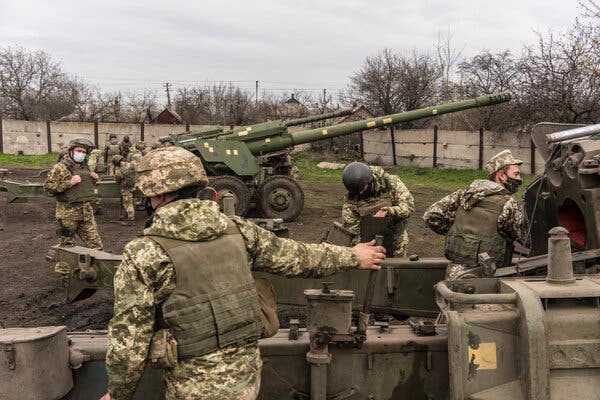
Even before the summit between the United States and Russia got underway on Wednesday, Ukrainian officials played down the prospect for a breakthrough on one of the thornier issues on the agenda: ending the war in eastern Ukraine, the only active conflict in Europe today.
Ukraine said it would not accept any arrangements made in Geneva between President Biden and President Vladimir V. Putin on the war, which has been simmering for seven years between Russian-backed separatists and the Ukrainian Army, officials said.
Before the summit’s start, Dmitri S. Peskov, the Kremlin’s spokesman, said that Ukraine’s entry into NATO would represent a “red line” for Russia that Mr. Putin was prepared to make plain on Wednesday. Mr. Biden said this week that Ukraine could join NATO if “they meet the criteria.”
The Ukrainian government has in recent years dug in its heels on a policy of rejecting any negotiation without a seat at the table after worry that Washington and Moscow would cut a deal in back-room talks. The approach has remained in place with the Biden administration.
“It is not possible to decide for Ukraine,” President Volodymyr Zelensky said on Monday. “So there will be no concrete result” in negotiations in Geneva, he said.
Ukraine’s foreign minister drove the point home again on Tuesday.
“We have made it very clear to our partners that no agreement on Ukraine reached without Ukraine will be recognized by us,” Dmytro Kuleba, the foreign minister, told journalists. Ukraine, he said, “will not accept any scenarios where they will try to force us to do something.”
Ukraine will have a chance for talks with the United States. Mr. Biden has invited Mr. Zelensky to a meeting in the White House in July, when a recent Russian troop buildup along the Ukrainian border is sure to be on the agenda.
Russia massed more than 100,000 troops along the Ukrainian border this spring. Despite an announcement in Moscow of a drawdown, both Ukrainian and Western governments say that only a few thousand soldiers have departed, leaving a lingering risk of a military escalation over the summer.
With Donald J. Trump in Osaka, Japan, in 2019.
With Barack Obama in New York in 2015.
With George W. Bush in Washington in 2005.
With Bill Clinton in Moscow in 2000.
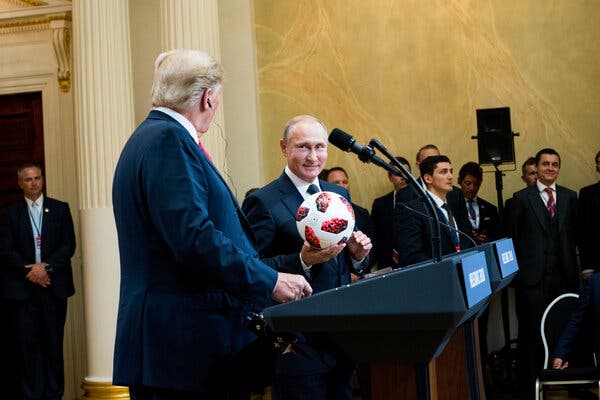
If President Biden wanted an example of a summit that did not go according to plan, he needed only look back to 2018.
That year, President Donald J. Trump flew to Helsinki to meet President Vladimir V. Putin of Russia, the first face-to-face meeting between the two and a highly anticipated moment given the then-ongoing investigations of Russian interference and cooperation with Mr. Trump’s 2016 presidential campaign.
It might have been a chance for Mr. Trump to push back against those accusations by offering a forceful denunciation of Russia’s actions in private, and again during a joint news conference by the two men.
Instead, standing on the stage by Mr. Putin’s side, Mr. Trump dismissed the conclusions by U.S. intelligence agencies about Russian meddling and said, in essence, that he believed Mr. Putin more than he did the C.I.A. and other key advisers
“They said they think it’s Russia,” Mr. Trump said. “I have President Putin; he just said it’s not Russia.” He added that he didn’t see any reason Russia would have been responsible for hacks during the 2016 election. “President Putin was extremely strong and powerful in his denial today.”
It was the kind of jaw-dropping assertion that U.S. administrations usually strive to avoid in the middle of highly scripted presidential summits. Critics lashed out at Mr. Trump for undermining his own government and for giving aid and comfort to an adversary. Even Republican allies of the president issued harsh denunciations.
“It is the most serious mistake of his presidency and must be corrected — immediately,” said Newt Gingrich, the former Republican House speaker and a staunch supporter of Mr. Trump.
There was nothing about the one day Helsinki summit that was normal. Mr. Putin and Mr. Trump were so chummy that the Russian president gave Mr. Trump a soccer ball to take home as a gift. Mr. Trump thanked him and bounced the ball to Melania Trump, the first lady, in the front row, saying he would take it home to give it to his son, Barron.
(Sarah Sanders, the White House press secretary at the time, later issued a statement saying that the ball — like all gifts — had been examined to make sure it had not been bugged with listening devices.)
In a statement issued as Mr. Biden headed to Europe last week, Mr. Trump once again called his meeting with Mr. Putin “great and very productive” and he defended supporting the Russian president over his intelligence aides.
“As to who do I trust, they asked, Russia or our ‘Intelligence’ from the Obama era,” he said in a statement. “The answer, after all that has been found out and written, should be obvious. Our government has rarely had such lowlifes as these working for it.”
The former president also took a cheap shot at his successor in the statement, warning him not to “fall asleep during the meeting.”
One thing was certain — Mr. Biden did not follow through on Mr. Trump’s request that when Mr. Biden met with Mr. Putin “please give him my warmest regards!”
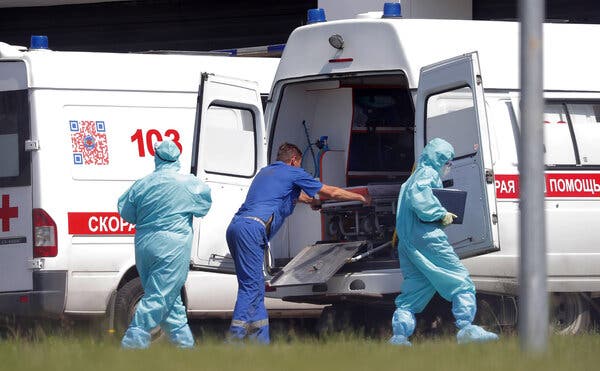
In the United States, fireworks lit up the night sky in New York City on Tuesday, a celebration meant to demonstrate the end of coronavirus restrictions. California, the most populous state, has fully opened its economy. And President Biden said there would be a gathering at the White House on July 4, marking what America hopes will be freedom from the pandemic.
Yet this week the country’s death toll passed 600,000 — a staggering loss of life.
In Russia, officials frequently say that the country has handled the coronavirus crisis better than the West and that there have been no large-scale lockdowns since last summer.
But in the week that President Vladimir V. Putin met with Mr. Biden for a one-day summit, Russia has been gripped by a vicious new wave of Covid-19. Hours before the start of the summit on Wednesday, the city of Moscow announced that it would be mandating coronavirus vaccinations for workers in service and other industries.
“We simply must do all we can to carry out mass vaccination in the shortest possible time period and stop this terrible disease,” Sergey S. Sobyanin, the mayor of Moscow, said in a blog post. “We must stop the dying of thousands of people.”
It was a reversal from prior comments from Mr. Putin, who said on May 26 that “mandatory vaccination would be impractical and should not be done.”
Mr. Putin said on Saturday that 18 million people had been inoculated in the country — less than 13 percent of the population, even though Russia’s Sputnik V shots have been widely available for months.
The country’s official death toll is nearly 125,000, according to Our World in Data, and experts have said that such figures probably vastly underestimate the true tally.
While the robust United States vaccination campaign has sped the nation’s recovery, the virus has repeatedly confounded expectations. The inoculation campaign has also slowed in recent weeks.
Unlike many of the issues raised at Wednesday’s summit, and despite the scientific achievement that safe and effective vaccines represent, the virus follows its own logic — mutating and evolving — and continues to pose new and unexpected challenges for both leaders and the world at large.
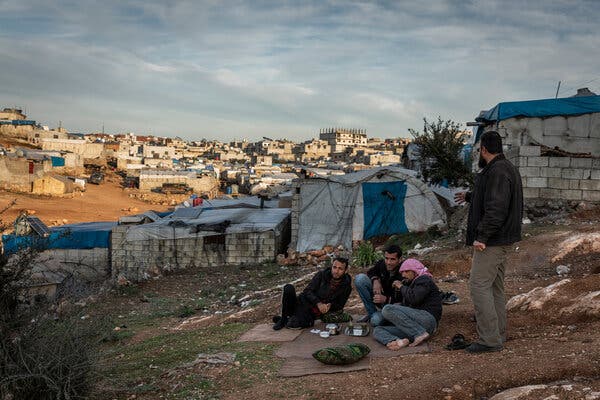
The conflict in Syria — which has now raged for 10 years and counting — was on the meeting agenda for President Biden and President Vladimir V. Putin of Russia as they met on Wednesday.
Since the start of the war, Russia has supported President Bashar al-Assad and his forces, and in 2015 it launched a military intervention with ground forces in the country to prop up the then-flailing government. In the years since, government forced have regained control of much of the country, with the support of Russia and Iran, as Mr. al-Assad’s forced tamped down dissent and carried out brutal attacks against Syrian civilians.
The United States also became deeply involved in the conflict, backing Kurdish forces in the country’s north and conducting airstrikes in the fight against the Islamic State. It has maintained a limited military presence there. Both the United States and Russian forces have found themselves on opposite sides of the multifaceted conflict on numerous occasions.
After years of failed attempts at peace in Syria as the humanitarian toll has continued to mount, Lina Khatib, the director of the Middle East and North Africa Program at Chatham House, a British think tank, said the moment could be ripe for the two major powers to chart a path forward.
She said that “despite taking opposing sides in the Syrian conflict, there is potential for a US-Russian compromise,” and that the summit could be the best place to begin that process.
“The Biden administration must not waste the opportunity that the U.S.-Russian summit presents on Syria,” Ms. Khatib wrote in a recent piece before the meeting in Geneva. “While the focus of various U.S. government departments working on Syria is on the delivery of cross-border aid, fighting the Islamic State and planning an eventual exit for U.S. troops, all these problems are products of the ongoing conflict, and solving them requires a comprehensive strategy to end it.”
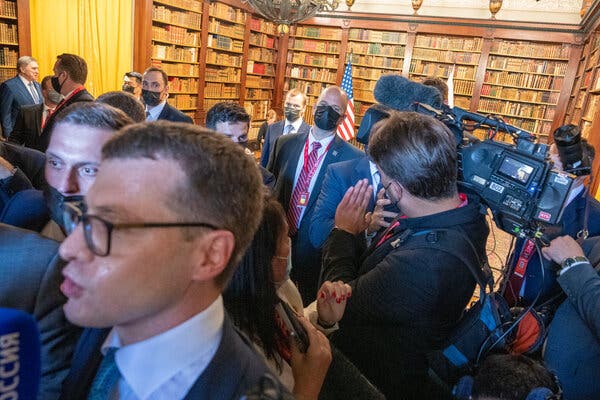
American and Russian reporters engaged in a shoving match on Wednesday outside the villa where President Biden and President Vladimir V. Putin of Russia were meeting, stranding much of the press outside when the two leaders began talking.
The chaotic scrum erupted moments after Mr. Biden and Mr. Putin shook hands and waved to reporters before closed-door meetings with a handful of aides.
President Guy Parmelin of Switzerland had just welcomed the leaders “in accordance with its tradition of good offices” to “promote dialogue and mutual understanding.”
But shortly after the two leaders entered the villa, reporters from both countries rushed the side door, where they were stopped by Russian and American security and government officials from both countries. There was screaming and pushing as both sides tried to surge in, with officials yelling for order.
White House officials succeeded in getting nine members of their 13-member press pool into the library where Mr. Biden and Mr. Putin were seated against a backdrop of floor-to-ceiling books, along with each of their top diplomats and translators. The two leaders had already begun to make very brief remarks before reporters were able to get in the room.
Inside, more scuffling erupted — apparently amusing to the two leaders — as Russian officials told photographers that they could not take pictures and one American reporter was shoved to the ground. The two leaders waited, at moments smiling uncomfortably, for several minutes before reporters were pushed back out of the room as the summit meeting began.
“It’s always better to meet face to face,” Mr. Biden said to Mr. Putin as the commotion continued.
Chaotic scenes are not uncommon when reporters from multiple countries angle for the best spot to view a world leader, often in cramped spaces and with government security and handlers pushing them to leave quickly.
But even by those standards the scene outside the villa in this usually bucolic venue was particularly disruptive. Russian journalists quickly accused the Americans for trying to get more people into the room than had been agreed to, but it appeared that the Russians had many more people than the 15 for each side that had been negotiated in advance.
“The Americans didn’t go through their door, caused a stampede,” one Russian reporter posted on Telegram.
In fact, reporters from both countries had been told to try to go through a single door, and officials for both countries at times were stopping all of the reporters from entering, telling them to move back and blocking the door.
When American officials tried to get White House reporters inside, the Russian security blocked several of them.
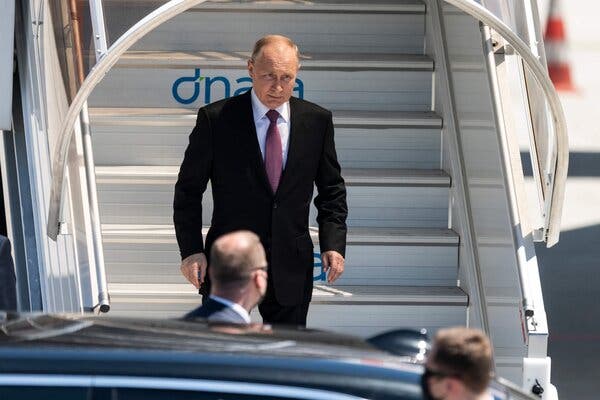
Wednesday’s Geneva summit got off to an auspicious start: President Vladimir V. Putin of Russia landed on time.
His plane landed at about 12:30 p.m., an hour before he was set to meet President Biden, who had arrived in Geneva the previous evening. Mr. Putin is known for making world leaders wait — sometimes hours — for his arrival, one way to telegraph confidence and leave an adversary on edge.
But this time Mr. Putin did not resort to scheduling brinkmanship.
The summit’s start was laced with delicate choreography: Mr. Putin arrived first, straight from the airport, and was greeted on the red carpet in front of a lakeside villa by President Guy Parmelin of Switzerland. About 15 minutes later, Mr. Biden arrived in his motorcade, shook hands with Mr. Parmelin and waved to reporters.
The Swiss president welcomed the two leaders, wishing them “fruitful dialogue in the interest of your two countries and the whole world.” He then stepped aside, allowing Mr. Biden and Mr. Putin to approach each other, smiling, and shake hands.
Russian officials on Wednesday sought to put a positive last-minute spin on the meeting.
“This is an extremely important day,” a deputy foreign minister, Sergey Ryabkov, told the RIA Novosti state news agency hours before the summit’s start. “The Russian side in preparing for the summit has done the utmost for it to turn out positive and have results that will allow the further deterioration of the bilateral relationship to be halted, and to begin moving upwards.”
Even before Mr. Putin landed, members of his delegation had arrived at the lakeside villa where the meeting is being held. They included Foreign Minister Sergey V. Lavrov, who joined Mr. Putin in a small-group session with Mr. Biden and Secretary of State Antony J. Blinken at the start of the summit; and Valery V. Gerasimov, Russia’s most senior military officer.
Police officers from across Switzerland — the words “police,” “Polizei” and “polizia” on their uniforms reflecting the country’s multilingual cantons — cordoned off much of the center of Geneva on Wednesday.
The city’s normally bustling lakefront was off limits, and the park where President Biden and Mr. Putin were meeting was protected by razor wire and at least one armored personnel carrier.
Inside the leafy Parc la Grange, overlooking Lake Geneva, the police directed journalists to two separate press centers — one for those covering Mr. Putin, one for those covering Mr. Biden. As the reporters waited for the leaders to arrive, a Russian radio reporter went on air and intoned that Lake Geneva had become “a lake of hope.”
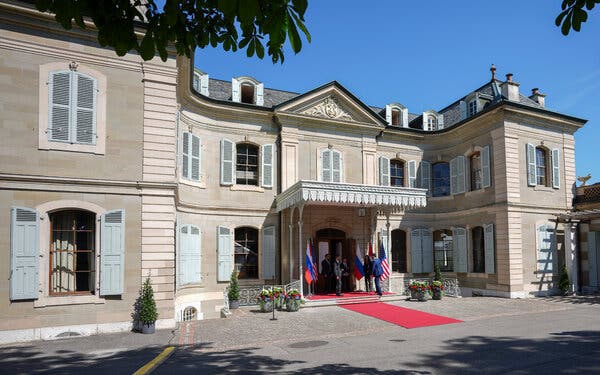
A storied villa on the shores of Lake Geneva is sometimes described as having “a certain sense of mystery about it,” but there was little mystery this week about why the mansion and the park surrounding it were closed off.
Visitors were coming.
The Villa la Grange, an 18th-century manor house at the center of Parc la Grange, was the site of the meeting on Wednesday between President Biden and President Vladimir V. Putin.
Set in one of Geneva’s largest and most popular parks, the site is known not just for its lush gardens, but also for its role as a setting for important moments in the struggle between war and peace.
In 1825, the villa’s library — home to over 15,000 works and the only room to retain the villa’s original decorative features — hosted dignitaries of a European gathering that aimed to help Greeks fighting for independence.
Designed by the architect Jean-Louis Bovet and completed in 1773, the villa was owned by the Lullin family and primarily used as a summer residence before it was bought by a merchant, François Favre, in 1800.
It cemented its place in history in 1864, when it was the site of a closing gala for officials who signed the original 1864 Geneva Convention, presided over by Henri Dunant, a founder of the International Red Cross. An attempt to ameliorate the ravages of war on both soldiers and civilians, it set minimum protections for people who are victims of armed conflict.
After World War II, a new draft of the conventions was signed in an attempt to address gaps in international humanitarian law that the conflict had exposed.
In 1969, Pope Paul VI, who traveled to the park to celebrate Mass for a congregation of tens of thousands, pointed to the villa’s history as he spoke about the risk of nuclear conflagration.
He spoke about the opposing forces of love and hate and called for “generous peacemakers.”

